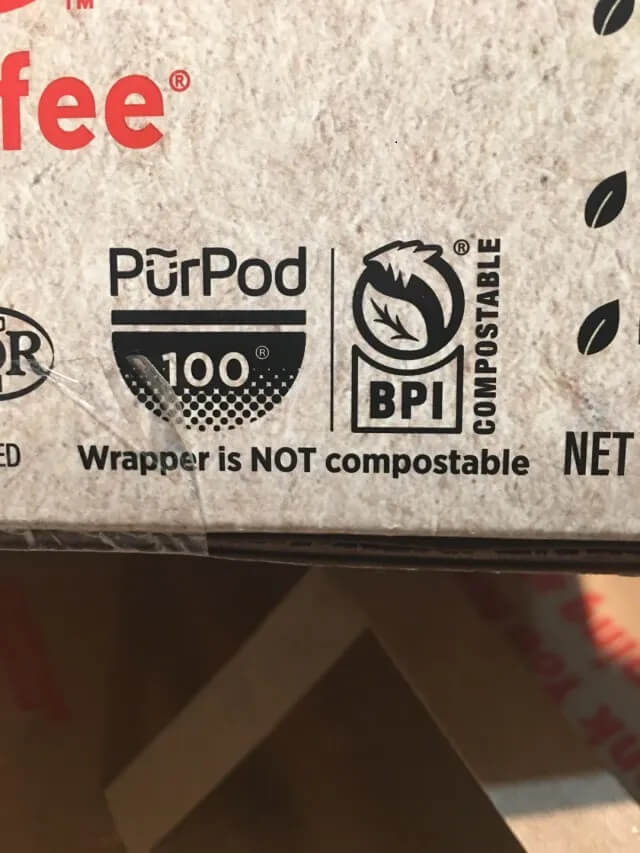If products, like people, were expected to dress for the jobs they want, the biodegradable coffee pod wrapped in plastic and posted by a Redditor didn't stand much of a chance.
What happened?
"Biodegradable coffee pods… individually wrapped in plastic," the poster wrote above a photo of the offending product.
The picture was a closeup of the PurPod logo, which stated that it was BPI certified as compostable. However, directly below this, it stated that the wrapper was not compostable.

"They tried," one optimistic user commented.
"Reminds me of that time they started wrapping paper straws in plastic sheathes. SMH," a second said.
"That's some evil marketing," another offered.
Further, BPI says it only certifies products for being commercially compostable, meaning the testing is done at higher temperatures that backyard composting is unlikely to achieve. Commercially compostable is a lot better than not at all compostable, but the labeling could give a false sense of security that the waste will break down just fine no matter what you do with it. In a standard landfill, these pods are still likely to take up plenty of space.
Why is the packaging problematic?
While the pods may be commercially compostable — a much better option than many single-use coffee pods — the plastic wrapping certainly is not.
Composting is a great way to reduce food waste and limit the planet-warming pollution created by food sent to rot in landfills, but the harm caused by the plastic wrapping diminishes this benefit of the product.
Around 40 million tons of plastic waste are tossed out annually in the United States, and only about 5% of this is recycled. Plastic waste in all its forms harms ecosystems and the people and wildlife living within them.
Plastic can take hundreds of years to break down, creating microplastics as it does. Scientists have found these tiny, polluting particles in the stomachs of wild animals, drinking water, human hearts, and just about anywhere else you can think of.
Another concern is that the product's labeling is an example of greenwashing — a marketing tactic in which a company makes false or misleading claims about the environmental benefits of a product or practice.
Greenwashing is extremely harmful and can be difficult to spot, leading well-intended consumers to purchase products they think are doing more good than they really are.
Is the company doing anything about it?
PurPod did not respond to The Cool Down's email request for comment on the packaging practice.
Its website devotes a large section to the company's sustainability initiatives, and while it excels in some aspects, there is still a ways to go. This is especially true as there are now alternatives to traditional plastic wrapping.
What can be done about the problem more broadly?
We can all educate ourselves on greenwashing and ensure that we support brands that avoid plastic packaging.
We can also avoid single-use coffee and other plastic products, opting for low-impact options, and talk to our friends and family about doing the same.
Join our free newsletter for cool news and actionable info that makes it easy to help yourself while helping the planet.









